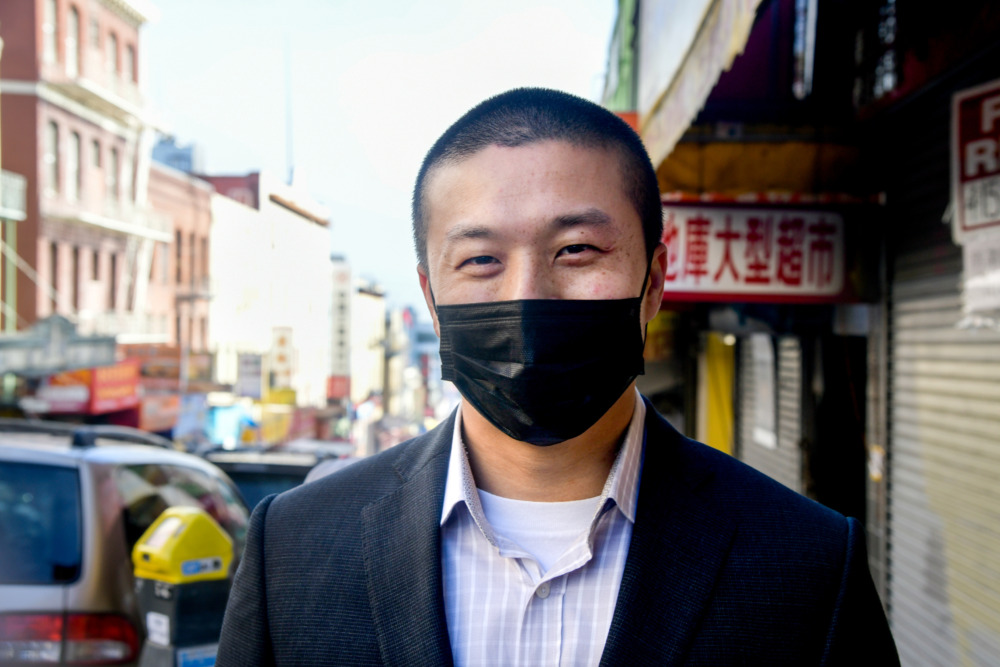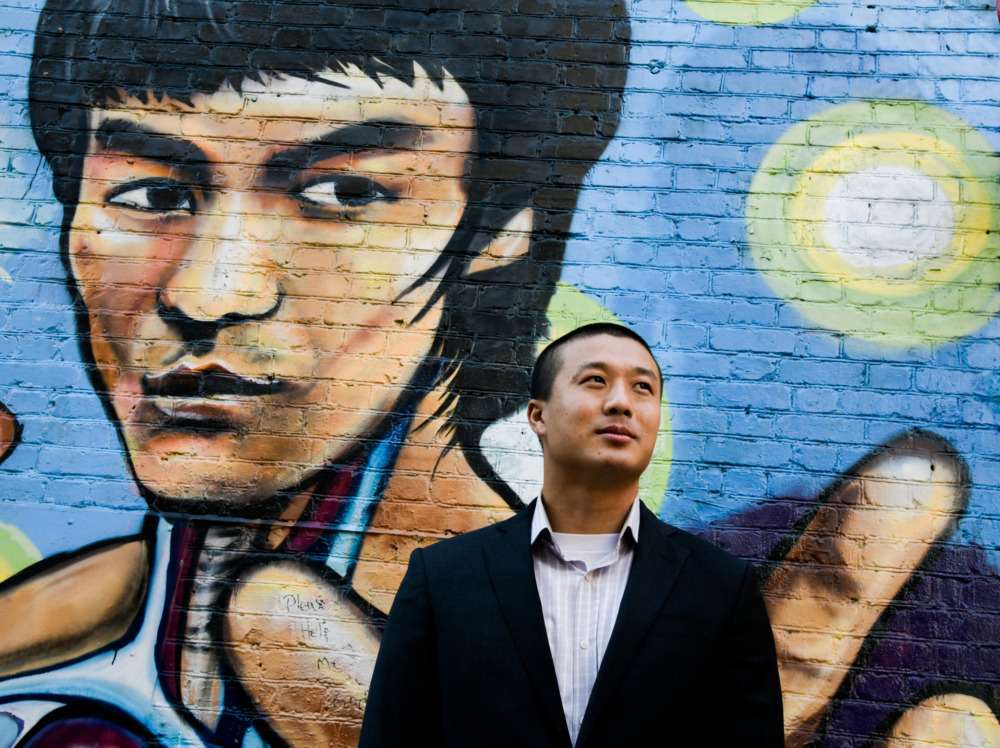Trustees Seek Security for SF Cantonese Speakers at Risk of Further Alienation, and the Program’s Last Lecturer
By JT Wildfeuer
A resolution for the revitalization of Cantonese that could rescue the nearly silenced language program was unanimously approved on Jan. 13 by the Board of Trustees.
The agenda item, proposed by Trustee Alan Wong, garnered support from over thirty organizations including Chinese Hospital and the San Francisco Domestic Violence Consortium.

Chinatown, San Francisco. January 19, 2022. (Janna Velasquez/The Guardsman)
The Resolution
Currently, students who have taken Cantonese classes at City College are unable to apply their credits to a UC school as their General Education, non-English language class.
The resolution cites the existence of Cantonese programs at Sacramento City College and College of Alameda that satisfy state requirements, and makes mention of existing certificate programs at City College of San Francisco for Spanish, Russian, Pilipino, Japanese, Italian, German, French, and Mandarin.
While the Board’s consensus makes clear its intention, to revitalize a once robust training in a language spoken by more San Franciscans than by any other city population in the country, it appears to fall first to the Chancellor’s office and the Academic Senate to determine its execution.
One proposed development was that of a 16-unit certificate program that would satisfy state funding requirements and university transfer standards.
These institutional changes, Trustee Wong says, would require the college to “start talking to the other four-year institutions and have a conversation about transferability,” as well as to facilitate discussions between department and faculty.
Trustee Wong, who makes no pretense of accomplishing the goals of the resolution “overnight,” says aspects like taking measurements for funding could potentially take “up to two years.”
In the meantime he proposes taking immediate steps to safeguard the future of the program by creating a 9-unit certificate unique to City College that, while not yet transferable, would help to track interest and drive the process.

Chinatown, San Francisco. January 19, 2022. (Janna Velasquez/Guardsman)
A Popular Program
City College’s Cantonese program, created in the 1960’s by Professor Gordon Lew, has seen, and continues to see, intense interest among Bay Area residents to learn the language.
City College’s sole remaining Cantonese instructor Grace Yu attributes this to a desire and need for emergency services to be better equipped to serve the area’s unique number of Cantonese speakers, and for their family members to learn to better communicate across generations.
Yu has been teaching at the college for over 30 years. In that time she has seen the program go from ten classes with five instructors, including herself, to a single part-time instructor teaching a maximum of three classes.
Two years into her employment Yu’s most senior colleague in the program retired, followed by another instructor the following year.
At this time her classes could have more than 40 students, and she described having “some students sit on the floor just trying to get a place.” To meet the need the college hired replacements.
Her department had four instructors, Yu said, “when one suddenly passed away … his classes and his position … [were] filled by a Mandarin instructor.”
The following year yet another instructor retired, Yu says, “Her class is also not offered anymore,” adding, “The position was also filled by a Mandarin instructor.”
This, she says, is how she came to be the only Cantonese instructor despite the historic and continued popularity of her courses.
Certificate Prospects
There are a number of obstacles standing between the program and the long-term security the Board’s resolution asserts the administration should seek to safeguard the program.
The keystone issue is the creation of the certificate itself that has a number of standards and requirements, which will ultimately fall to Yu to materialize, and may involve significant work and course overhauls.
“Right now,” Yu says, “there are four levels of classes, but only three of them can be used to apply to the certificate program … so that means only nine units [meet state certification standards].”
Yu says that another course, like Mandarin which has grown as the Cantonese program has diminished, cannot be used to bring the certificate to 12 units, according to the World Languages and Cultures Department Chair Diana Garcia-Denson.
The Guardsman has not received a response to a request for comment from Garcia-Denson.
“The solution,” Yu says, “is to hire another instructor to help me … because I feel that I’m just overwhelmed.”
Yu says she was told by Chair Garcia-Denson that there is not room enough in the budget for more than three classes per year, a state of affairs which could prove to be a roadblock to meeting state certificate standards, or requirements for certificates for transfer to state universities.
If the college cannot afford 12 units, it will struggle to expand the program to accommodate a 16 unit certificate on any timeline.
In a statement to The Guardsman on the resolution, Chancellor David Martin thanked the Board of Trustees for “their leadership in ensuring City College continues the tradition of offering high quality programs that meet the needs of our communities.”
He says he is “excited to work with the faculty on the college’s curriculum committee, as well as the academic senate, to explore options and pathways to enhance City College’s Cantonese language program.”
Instructor Grace Yu’s ultimate prescription: “Give more money to the Cantonese program, so [Chair Garcia-Denson] can hire a new instructor, so she can add more Cantonese classes.”
